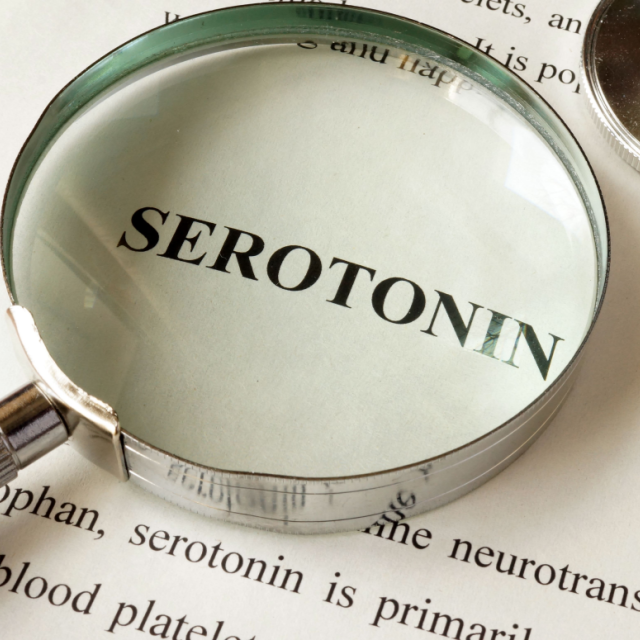(BMJ)—A 63-yo woman w/ hx of depression and alcohol use disorder was found unresponsive by her husband. She had consulted her PCP about cold-like sx experienced over the past 2wk, for which she was prescribed a cough syrup. The pt’s husband denied any recent alcohol intake. Meds: amlodipine, escitalopram, labetalol, ER naltrexone, and promethazine/dextromethorphan. On exam, she had altered mental status, intermittent arm twitching, sluggish pupillary response, and inducible clonus of the lower extremities. ECG done on admission showed 1st-degree AV block w/ QTc 724 msec. Dx: serotonin syndrome, QT prolongation, and viral URI.
Which drug combo could have caused serotonin syndrome?
Which drug combo could have caused serotonin syndrome?

|
promethazine/dextromethorphan and naltrexone
|
|
escitalopram and naltrexone
|
|
amlodipine and naltrexone
|
|
promethazine/dextromethorphan and escitalopram
|
